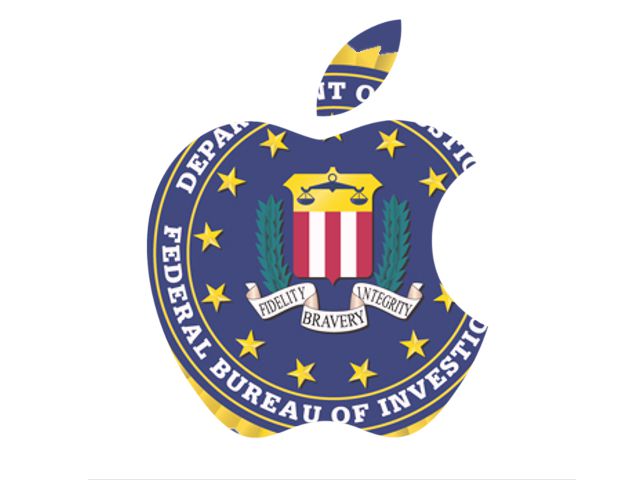StretfordRed
Afro-European
Surprised there hasn't already been a thread on this:

Apple and Google today announced a joint effort that will see them using Bluetooth technology to help governments and health agencies reduce the spread of the COVID-19 virus around the world.
Apple says that user privacy and security will be central to the design of the project. Participation will be opt-in, and privacy, transparency, and consent are "of the utmost importance of this effort."Starting in May, Apple and Google will release APIs that enable interoperability between Android and iOS devices using apps from public health authorities. These apps will be available for users to download from the iOS App Store and Google Play.
In the coming months, Google and Apple will work to enable a broader Bluetooth-based contact tracing platform by building this functionality into their underlying platforms. Apple says that this solution is more robust than an API and will allow more individuals to participate, if they choose to opt in, and it will enable interaction with a broader ecosystem of apps and government health authorities.All information about the work being conducted by Apple and Google will be openly published and built in consultation with interested stakeholders. Initial details on the contact tracing technology are available on Apple's new webpage for the feature, which has links to technical documentation on Bluetooth specifications, cryptography specifications, and the framework API.
TechCrunch has specific details on how the tracking procedures will work. A random, rotating identifier will be assigned to a person's phone, and it will be transmitted via Bluetooth to other nearby devices.
The identifier, which rotates every 15 minutes and has no personally identifiable information, will pass through a relay server that can be run by health organizations worldwide. The list of identifiers a person has been in contact with doesn't leave the phone unless the user explicitly decides to share it. Users that test positive will not be identified to other users, Apple or Google.
All identification matching is done on device, allowing users to see within a 14-day window, whether their iPhone has been near the device of a person who has self-identified as having tested positive for COVID-19. Users who are notified that they have been exposed will then receive steps on what to do through a public health app.
Apple and Google are not using any location data for the tracking feature, including from the users who report being positive. The tool is meant to determine not where affected people have been, but rather if they've been around other people so that those people will know to self isolate due to the exposure.
Note: Due to the political or social nature of the discussion regarding this topic, the discussion thread is located in our Political News forum. All forum members and site visitors are welcome to read and follow the thread, but posting is limited to forum members with at least 100 posts.
Article Link: Apple and Google Partner on Opt-In COVID-19 Contact Tracing Technology to Be Added to iPhone and Android Smartphones
*************************************************************************************************************************
It's pretty interesting and I think it's a step that will help the US in their fight in Coronavirus. This is not something new in regards to battling this pandemic, as China and South Korea did similar things.
I'd had been a lot more skeptical if it was just Google, but considering Apple are in and are backing the privacy aspect of it, it is a lot more settling.
Security and privacy documents are here: Privacy-Preserving Contact Tracing - Apple and Google
It all checks out - seems like this is going to be an interesting project in the future. We have something kinda similar in the UK where TfL (The MTA of London) track passengers anomalously via WiFi when we're in the underground system - that is not an opt-in or even out

Apple and Google today announced a joint effort that will see them using Bluetooth technology to help governments and health agencies reduce the spread of the COVID-19 virus around the world.
Apple says that user privacy and security will be central to the design of the project. Participation will be opt-in, and privacy, transparency, and consent are "of the utmost importance of this effort."Starting in May, Apple and Google will release APIs that enable interoperability between Android and iOS devices using apps from public health authorities. These apps will be available for users to download from the iOS App Store and Google Play.
In the coming months, Google and Apple will work to enable a broader Bluetooth-based contact tracing platform by building this functionality into their underlying platforms. Apple says that this solution is more robust than an API and will allow more individuals to participate, if they choose to opt in, and it will enable interaction with a broader ecosystem of apps and government health authorities.All information about the work being conducted by Apple and Google will be openly published and built in consultation with interested stakeholders. Initial details on the contact tracing technology are available on Apple's new webpage for the feature, which has links to technical documentation on Bluetooth specifications, cryptography specifications, and the framework API.
TechCrunch has specific details on how the tracking procedures will work. A random, rotating identifier will be assigned to a person's phone, and it will be transmitted via Bluetooth to other nearby devices.
The identifier, which rotates every 15 minutes and has no personally identifiable information, will pass through a relay server that can be run by health organizations worldwide. The list of identifiers a person has been in contact with doesn't leave the phone unless the user explicitly decides to share it. Users that test positive will not be identified to other users, Apple or Google.
All identification matching is done on device, allowing users to see within a 14-day window, whether their iPhone has been near the device of a person who has self-identified as having tested positive for COVID-19. Users who are notified that they have been exposed will then receive steps on what to do through a public health app.
Apple and Google are not using any location data for the tracking feature, including from the users who report being positive. The tool is meant to determine not where affected people have been, but rather if they've been around other people so that those people will know to self isolate due to the exposure.
Note: Due to the political or social nature of the discussion regarding this topic, the discussion thread is located in our Political News forum. All forum members and site visitors are welcome to read and follow the thread, but posting is limited to forum members with at least 100 posts.
Article Link: Apple and Google Partner on Opt-In COVID-19 Contact Tracing Technology to Be Added to iPhone and Android Smartphones
*************************************************************************************************************************
It's pretty interesting and I think it's a step that will help the US in their fight in Coronavirus. This is not something new in regards to battling this pandemic, as China and South Korea did similar things.
I'd had been a lot more skeptical if it was just Google, but considering Apple are in and are backing the privacy aspect of it, it is a lot more settling.
Security and privacy documents are here: Privacy-Preserving Contact Tracing - Apple and Google
It all checks out - seems like this is going to be an interesting project in the future. We have something kinda similar in the UK where TfL (The MTA of London) track passengers anomalously via WiFi when we're in the underground system - that is not an opt-in or even out
Last edited:


 It’s using Bluetooth
It’s using Bluetooth




